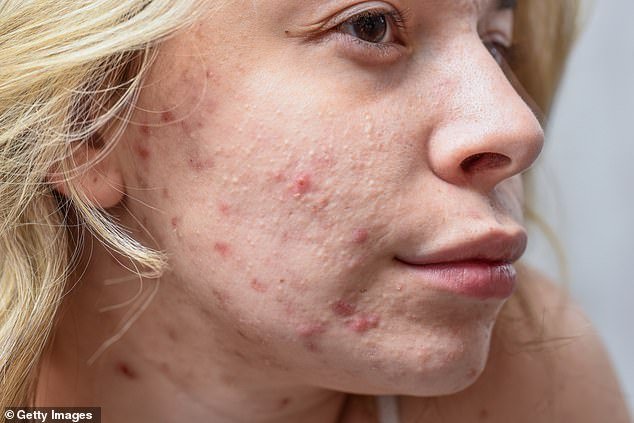Understanding Adult Acne: Causes, Treatments, and Solutions
Acne is not just a teenage problem; many adults experience breakouts that can be frustrating and challenging to manage. In fact, adult acne has seen a 10% increase since 2012, affecting individuals over the age of 25. This condition not only impacts physical appearance but can also lead to emotional distress. Let’s delve into the causes, effective treatments, and lifestyle changes that can mitigate adult acne.
What Causes Adult Acne?
Hormonal Influences
Adult acne is more prevalent in women, particularly those in their late 20s to early 40s, often due to hormonal fluctuations. Dr. Anjali Mahto, a consultant dermatologist, emphasizes that stress combined with hormonal changes can create an environment conducive to breakouts:
- Androgens: These male hormones, though present in women in lower amounts, can trigger oil production and subsequent acne.
- Hormonal inflection points: Key life stages such as pregnancy or menopause can exacerbate acne symptoms.
Lifestyle Factors
Several lifestyle choices can contribute to the prevalence of adult acne:
- Thick, oily makeup: Products that are occlusive may lead to clogged pores.
- Dietary habits: Certain foods can aggravate breakouts. Focus on reducing sugar and refined carbs for healthier skin.
Concerns about cosmetic products: The use of make-up does not inherently cause acne, but poor removal practices can lead to breakouts. Use non-comedogenic products to avoid clogging pores.
Can Acne Location Reveal Its Cause?
While many claim that specific facial areas correlate to certain causes (a concept sometimes called "face mapping"), dermatologists caution against taking these claims at face value. Dr. Sina Ghadiri explains that:
- Hormonal acne often manifests on the lower face, jawline, and chin.
- The location of breakouts can provide insights but should not be solely relied upon for diagnosis.
Effective Treatments for Adult Acne
Initial Steps
When faced with adult acne, it’s wise to simplify your skincare routine. Here are recommended steps from Dr. Justine Kluk:
- Gentle cleansing: Use a non-comedogenic cleanser to avoid irritating the skin.
- Moisturization: Choose lightweight moisturizers that won’t clog pores.
- Targeted treatments: Incorporate active ingredients such as salicylic acid or benzoyl peroxide.
Recommended Products:
- Benzoyl Peroxide: An effective treatment available over the counter to help control acne.
- Hydrocolloid patches: Useful for fast spot treatment.
Lifestyle and Dietary Adjustments
Dietary Impact
Instead of rigid diets, focus on overall dietary patterns that promote skin health:
- Mediterranean diet: Rich in fruits, vegetables, whole grains, and healthy fats can help mitigate acne.
- Minimize processed foods: A diverse, balanced diet is crucial for maintaining skin health.
Stress Management
Reducing stress through practices like yoga or meditation can also benefit your skin. Quality sleep and maintaining clean environments (like pillowcases) are essential steps in combating acne.
When to Seek Professional Help
For persistent acne that affects your confidence, consulting a dermatologist is recommended. They can offer tailored advice and treatments. Initial consultations might involve:
- Topical or oral antibiotics
- Diagnosis confirmation: Differentiating between acne and other skin conditions like rosacea or folliculitis.
Advanced Treatment Options
If your acne is severe or unresponsive, dermatologists can prescribe advanced treatments:
- Isotretinoin: A powerful treatment often used for severe acne.
- Hormonal therapies: Birth control pills can help regulate hormones in women with conditions like PCOS.
Managing Acne Scars
Post-acne, scars can be a concern. Treatments include:
- Laser resurfacing: Helps in improving skin texture.
- Retinoids: Assist in skin renewal and discoloration reduction.
Sun protection is crucial during this process, as UV exposure can darken scars.
Makeup and Acne: What You Should Know
If you feel the need to cover acne, opt for less coverage and non-comedogenic products. Dr. Mahto advises using:
- Oil-free products: To avoid exacerbating breakouts.
- Regular brush cleaning: To maintain skin health and minimize bacterial buildup.
Conclusion
Adult acne is a complex condition influenced by hormonal shifts, lifestyle choices, and skincare practices. It’s crucial to approach treatment holistically, combining effective skincare with lifestyle adjustments and professional consultations when necessary. Remember, seeking help is vital, and no one should feel embarrassed about wanting to improve their skin health. Effective, personalized treatment options are available to restore your confidence and skin health.


